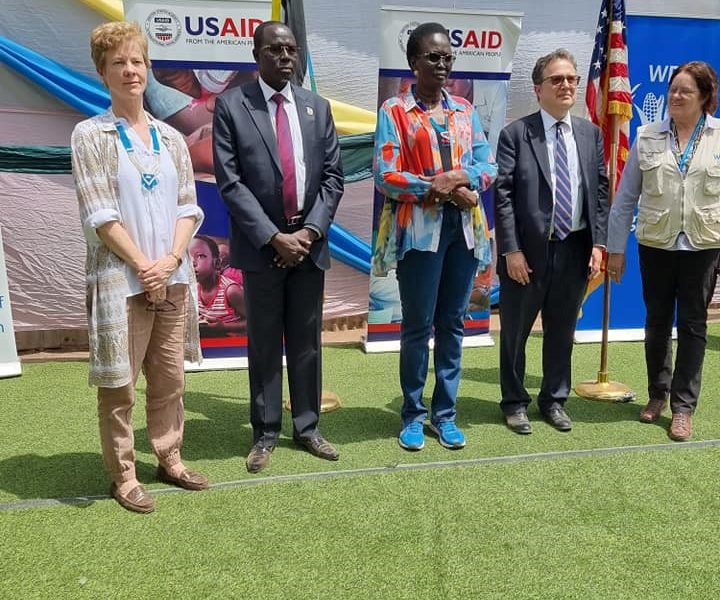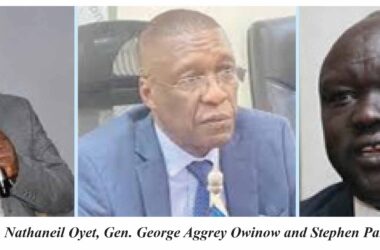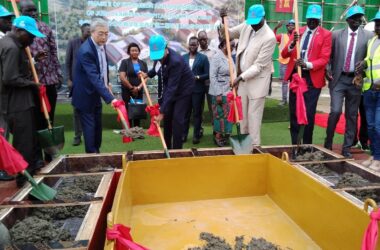By Bida Elly David
United Nations human rights experts have made calls for South Sudan leaders to speedily put to an end attacks and assaults on civilians and prioritize peaceful and just transition for peace to prevail.
This appeal was made yesterday during a press conference held in Juba by two commissioners for the United Nations Commission on Human Rights in South Sudan who are concluding their 11 countries’ visit from 14 to 18 February 2023.
Speaking to Journalists yesterday, Barney Afako, United Nations expert on human rights demonstrated concerns over the suffering of women from sexual violence as well as discrimination of all kinds.
“The suffering across the country remains immense. South Sudanese women and girls continue to face unspeakable sexual violence. Political leaders must reorient their priorities and work together to put an end to this needless violence and protect the human rights of South Sudanese,” he said.
Afako added that since implementation of the 2018 Revitalized Peace Agreement is under delay, South Sudan’s political leaders must seize the opportunity to reset the country towards peace, democratic transformation, and prosperity.
“We always appreciate the opportunity to visit South Sudan, and to have meaningful discussions with a range of people, to learn more about the human rights situation and prospects for the credible conclusion of this transitional period,” he continued.
Mr. Afako added that despite warning the leaders against the tragedies last year, the peace agreement still battles its movement towards success with continuous civil suffering.
On his part, Andrew Clapham, another commissioner for the United Nations Commission for Human Rights in South Sudan reiterated words of shock as sexual violence and several attacks has never been quelled by the authority.
He said that testimonies from victims of sexual violence and attacks revealed that continuous insecurity still looms without transformation into betterment.
“Our Commission has documented human rights violations in South Sudan for many years, but we were still shocked by the sexual violence and continuing attacks against civilians,” he remarked.
Commissioner Clapham echoed those reports gathered revealed no accountability against actors on crimes.
“The accounts from survivors are horrific. Many people the Commission has met have experienced attacks over and over again. At the same time, people responsible for crimes walks freely,” he voiced.
Moreover, Clapham pointed facts on total civil devastation and their properties across the Country have been gathered especially the Upper Nile crisis that claimed lives.
He stated that Conflicts in Upper Nile State and northern parts of Jonglei State have involved multiple armed groups, with minimal response from the State despite months of widespread attacks against civilian population.
“Extrajudicial killings also continued, implicating senior State officials, who have enjoyed impunity even where the crimes have been caught on camera. Civil society leaders and other observers told the Commissioners that political and civic space in the country has continued to shrink,” he said.
The Commission on Human Rights in South Sudan is an independent body mandated by the UN Human Rights Council. First established in March 2016, it has three Commissioners, who are supported by a Secretariat that is based in Juba, South Sudan.
The Commission is mandated to investigate the situation of human rights in South Sudan, and to determine and report the facts and circumstances of human rights violations and abuses, including by clarifying responsibility for violations and abuses that are crimes under national and or international law.
To assist in addressing impunity in South Sudan, the Commission is also mandated to collect and preserve evidence, and to make this available to transitional justice mechanisms, including the hybrid court for South Sudan that is to be established under Chapter 5 of the Revitalized Peace Agreement of 2018.




